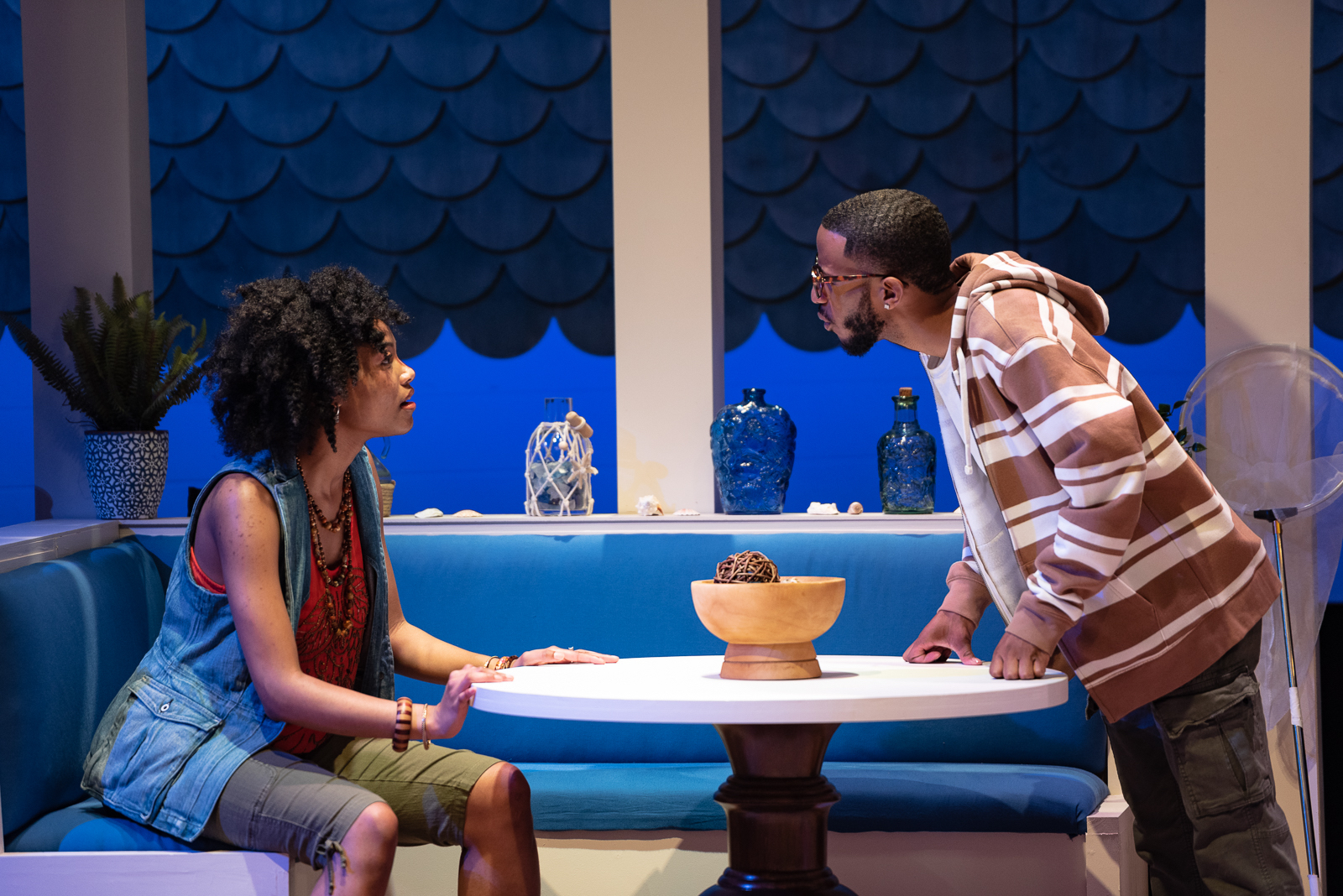Black Theatre and Dance Symposium at The Clarice This Weekend
April 15, 2022

The School of Theatre, Dance, and Performance Studies’ two-day event will feature workshops, discussions and speakers.
By Jessica Weiss ’05
Theater, dance and performance professionals, scholars and students from across the region will come together this weekend at The Clarice Smith Performing Arts Center to build connections and knowledge and share ideas about the most pressing issues in Black theater and dance.
The School of Theatre, Dance, and Performance Studies’ (TDPS) Black Theatre and Dance Symposium (BTDS), back for the first time since the start of the COVID-19 pandemic, will feature workshops, discussions and speakers under the theme “Resilience: Revive, Restore & Reconnect.” The event kicks off Friday, April 15, at 3 p.m. and ends Saturday, April 16, at 5 p.m.
Given the upheaval of the last two-plus years, the 2022 event aims especially to “give back” to K-12 educators who may benefit from knowledge on expanding inclusive practices, civility and social well-being in the performing arts at their institutions, said Professor of Theater Performance Scot Reese, the head of performance in TDPS.
Reese founded BTDS—which was formerly the Black Theatre Symposium—in 2014 along with Thembi Duncan ’09, a theater alum, who was then the Artistic Director of the African Continuum Theatre Company, one of Washington, D.C.’s premiere companies dedicated to Black theater. In 2018, the symposium added dance, thanks to Head of Dance Performance and Scholarship Alvin Mayes, who still leads the dance portion. BTDS has featured workshops, discussions and speakers on topics as far ranging as business and branding, Black dramaturgy and racial “battle fatigue.”
Workshops this year will be led by Duncan, now the director of arts engagement and education at Shea's Performing Arts Center in Buffalo, New York; Crystal Davis, assistant professor of dance performance and scholarship; and Farah Lawal Harris ’08, playwright, director and actor, who graduated from UMD with a triple degree in theater performance, criminology & criminal justice and African American studies. There will be two keynote speakers—Michelle Rogers is an actress, acting coach and TV attorney; her partner, KenYatta Rogers, is the coordinator for the theater discipline at Montgomery College, as well as a director and performer. He is also directing the TDPS production of Lydia Diamond's Stick Fly, which opens this weekend in the Kogod Theatre.
In advance of this year’s symposium, we spoke to Reese about the event’s evolution and importance and a preview of what’s to come.
Why did you create BTDS in 2014?
Thembi Duncan and I were bemoaning the lack of opportunities to gather around Black theater, both at school and professionally, and so we decided we had to galvanize everybody together and instead of us all doing our own thing, get people in the DMV to come together to celebrate what we do. It very much feels like a Black family reunion. Over time we realized that even though the focus is on Black theater and performance, we have a lot of allies that would want to participate, so we’re really celebrating all that we have and bringing in everyone to celebrate that with us. We’re an inclusive household.
Tell me about this year’s focus on educators.
In past years, we noticed we had a lot of K-12 teachers coming to learn, process and give, but we weren’t gearing the event to them. Given all that’s happened with the pandemic, we decided this year we would celebrate teachers and facilitate their study and learning—helping them more specifically. We want to give them things they can bring back to their classrooms, like pedagogy, ways to teach Black theater, how to choose plays and cast. Let’s say a teacher is in a school that hasn’t had a lot of representation of Black plays. What are the plays that are relevant, suitable and accessible for K-12 students, and how do you have diverse, equitable casting in a K-12 school?
What’s so special about the Black theater community in the Washington, D.C., metropolitan area?
Well, it all kind of started out here—Washington, D.C. used to have “Black Broadway”; the U Street Corridor was a hub of Black culture and art in the 20s and 30s. All the Black glitterati, the pioneers, were here—Langston Hughes, Duke Ellington, Billie Holliday. Now, we have so many outgrowths of this beautiful, rich history, in Washington, D.C., but also in Baltimore, Virginia. There’s so much Black theater and dance but we don’t always get to gather together at once.
The symposium also coincides with the opening of Stick Fly.
It’s a perfect fit. The play is about a Black family that is vacationing at their summer house in Martha’s Vineyard and celebrating and working through different issues. It’s the same with all of us at the symposium. We’re not a monolith—we’re a family, with different issues, ideas and thoughts. If you come to a workshop, you’ll see it’s like a family discussing all the things we need to talk about.
The 2022 Black Theatre and Dance Symposium is on Friday, April 15, and Saturday, April 16, at The Clarice Smith Performing Arts Center. Learn more and register here.
Photo from TDPS's production of "Stick Fly" by Dylan Singleton.

